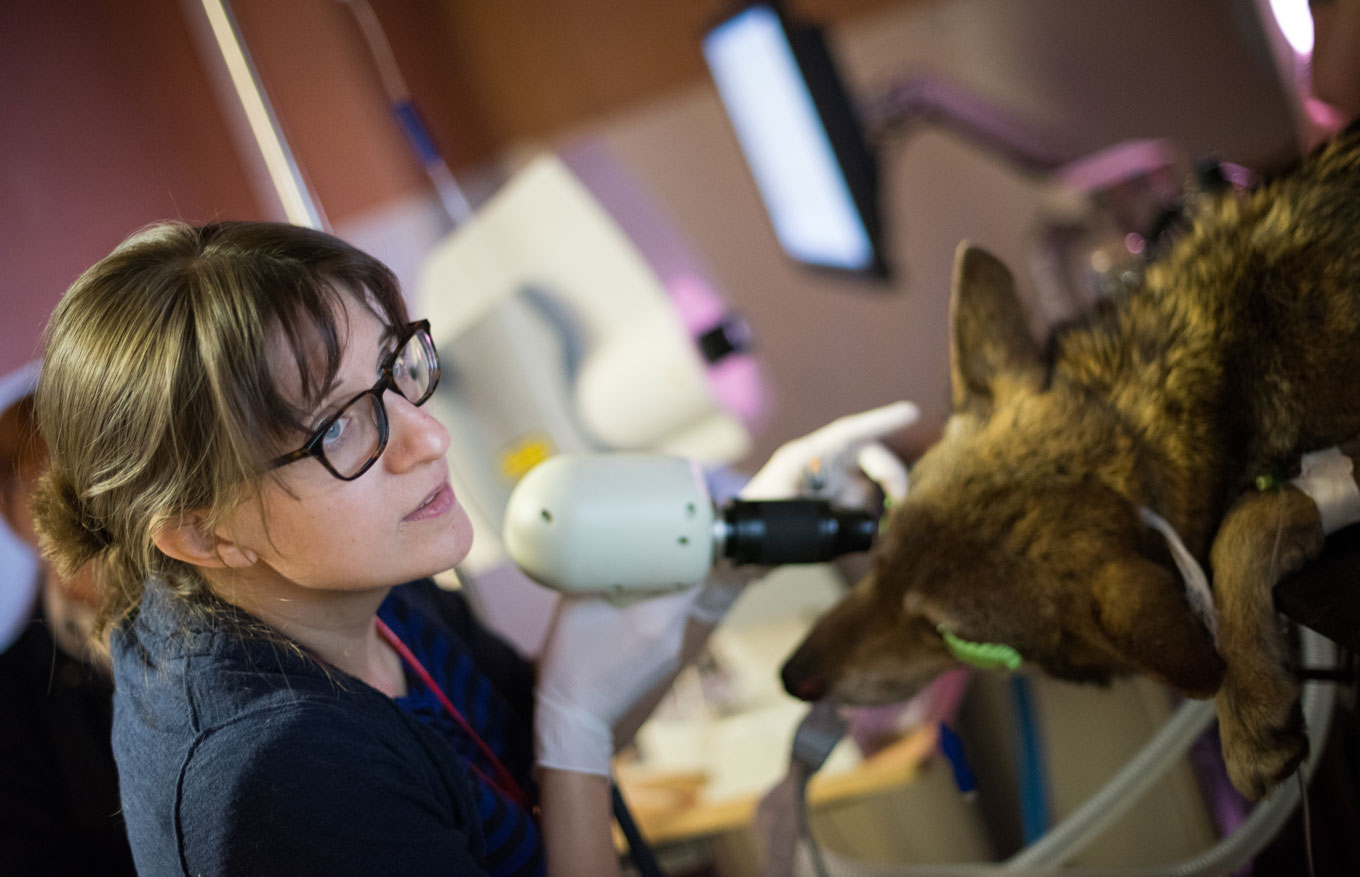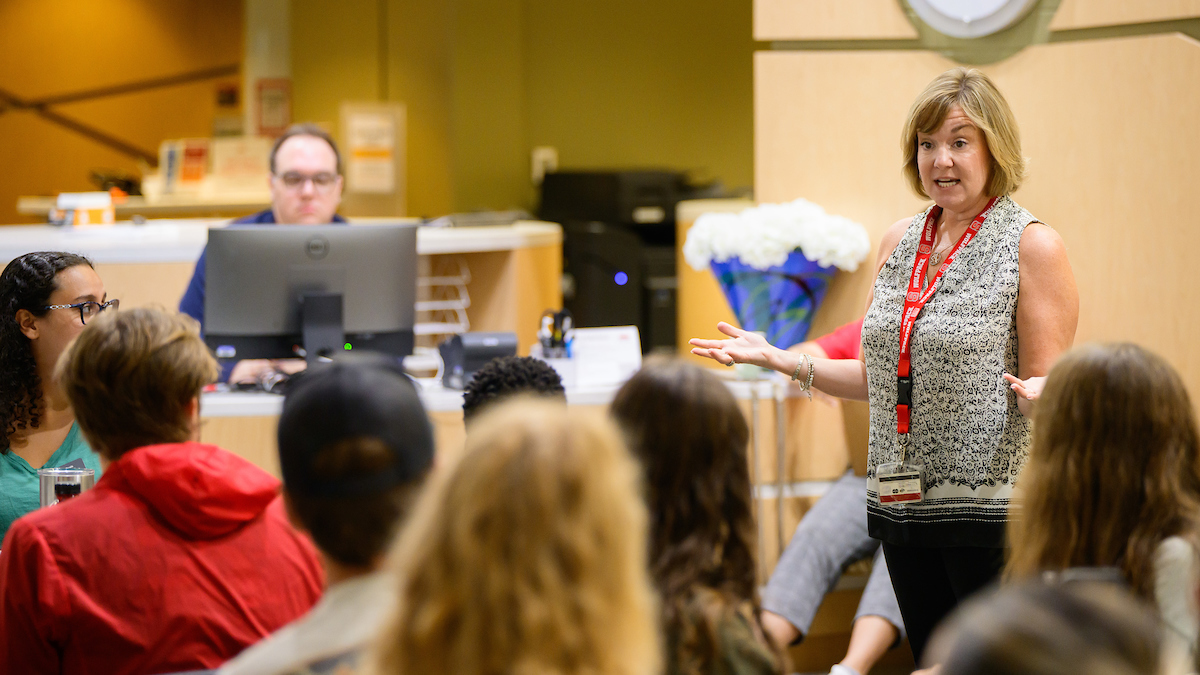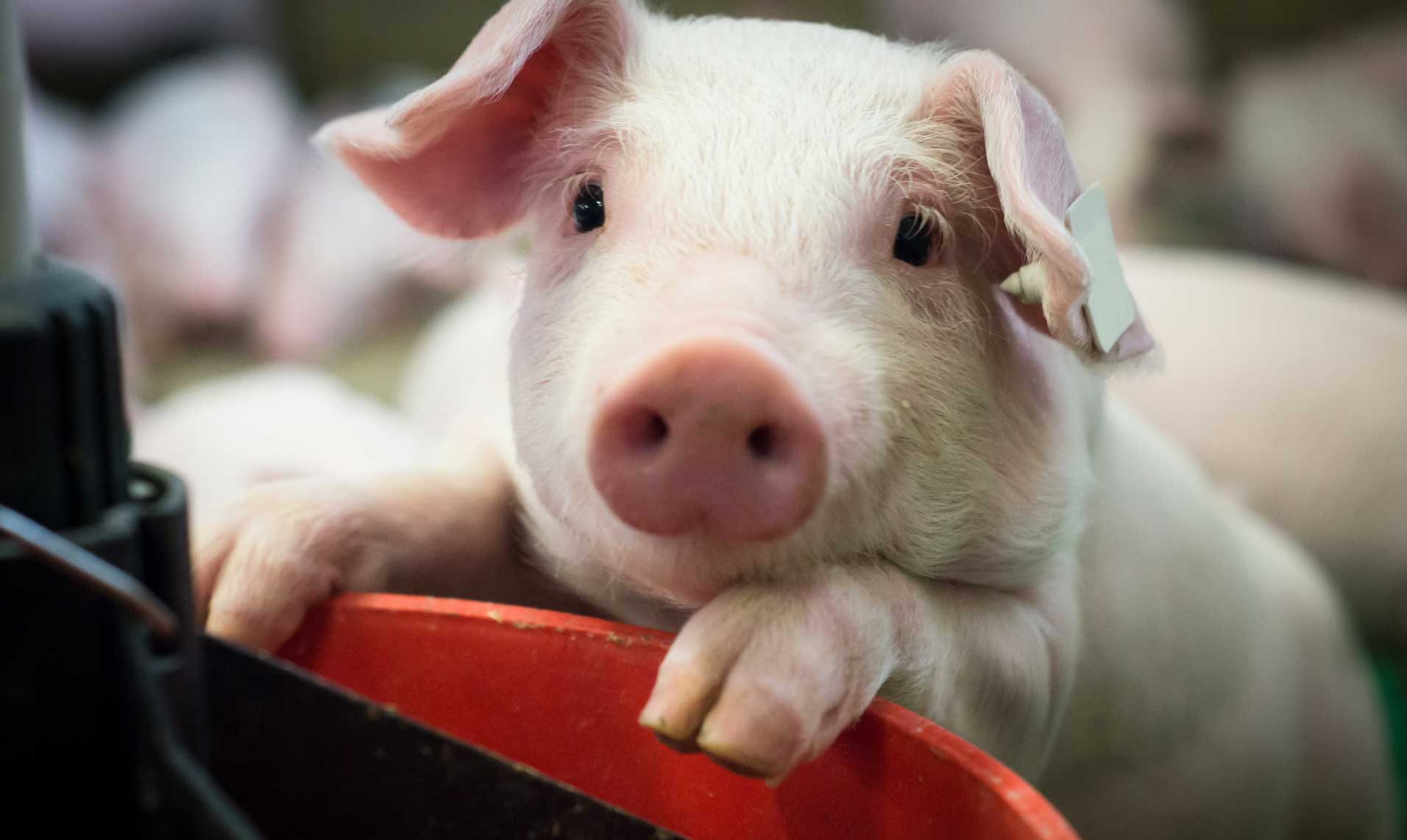New Study Aims to Combat Blindness in the Endangered Red Wolf

A new research project at the NC State College of Veterinary Medicine could make a vital impact on the survival of the critically endangered American red wolf. Only about 40 of the wolves live in the wild, all in North Carolina.
Principal investigator Freya Mowat, CVM assistant professor of ophthalmology, has received a grant to develop a genetic screening test to monitor and hopefully eliminate an inherited form of blindness in the species.
The current American red wolf population is fewer than 300. Roughly 200 of the wolves live in zoos and nature centers in the U.S. About 40 wild wolves remain in North Carolina, according to a recent review, part of a group released during a reintroduction effort.
The grant comes from the Sarah K. DeCoizart Perpetual Charitable Trust, which funds projects supporting animal and environmental conservation, as well as research involving blindness and vision impairments. Mowat is an expert on inherited retina diseases in canids, the animal family that includes wolves, foxes and domesticated dogs.
Mowat’s two-year project will investigate how widespread the disease is through DNA collection and define its molecular characteristics. The aim is to develop a screening test to help slowly take the disease out of the gene pool. The CVM study’s co-investigators are Matthew Breen, the Oscar J. Fletcher Distinguished Professor of Comparative Genetics, and Suzanne Kennedy-Stoskopf, research professor of aquatics, wildlife and zoo medicine.
“This research to eliminate blindness in the red wolf species in imperative for the purpose of animal welfare and for the ultimate survival of the species in the wild,” the grant proposal noted.
Mowat’s lab has already completed critical preliminary work for the study, including determining that the blindness is inherited, most commonly affects males and typically results in blindness by the time a wolf is 5 to 7 years old. Combating blindness, the proposal notes, is critical to the wolves’ long-term health, ability to find food and breed successfully.
It’s not the first time Mowat and Kennedy-Stoskopf have worked together on a red wolf project. A few years ago, they teamed to conduct physical examinations of red wolves living in a wildlife refuge in northeastern North Carolina, which included screenings for degenerative eye diseases.
For more information on Freya Mowat’s lab, go here.


